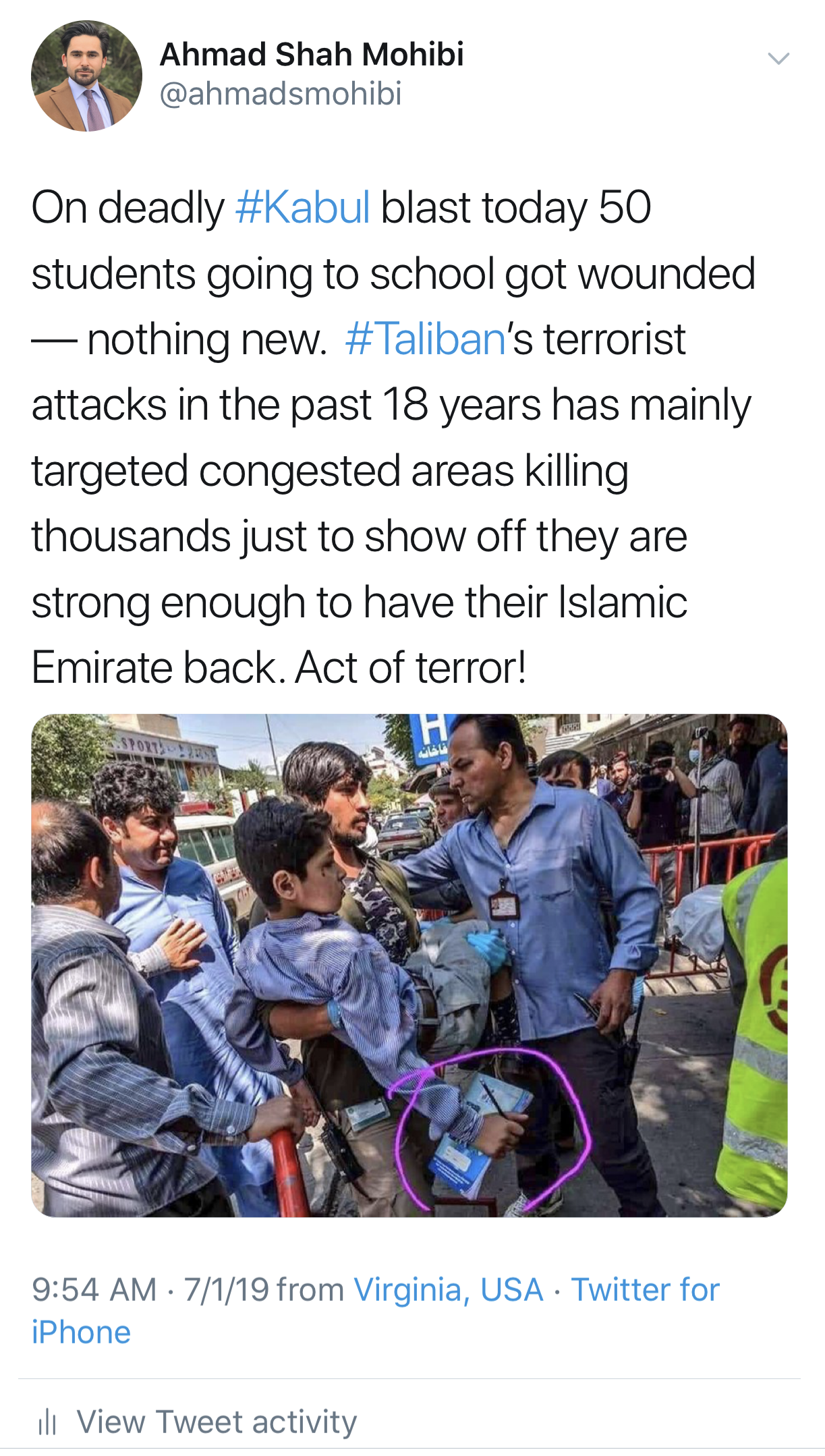
Taliban attack threatens Afghan peace talks
On July 1st, 2019, the Taliban committed multiple attacks in Kabul, Afghanistan which killed at least forty people and injured over 100 more. The facilities damaged included the Private War Museum, a local television station, as well as a primary school.
Soon after the attack, American and Taliban negotiators met in Qatar. The Taliban stated that their intended target was the logistics and engineering unit of the Ministry of Defense. The Interior Ministry reported that the car bomb detonated near the museum and television station after attackers entered the Defense Ministry building.

Wounded children are taken to the hospital by the Kabul residents after the Kabul blast on July 1, 2019.
Recent peace talks involving the United States and Taliban negotiators have focused on four key issues:
- The Taliban will not allow fighters to utilize Afghan soil to launch attacks outside of the country
- Withdrawal of U.S. and North Atlantic Treaty Organization (NATO) forces from Afghanistan
- An Intra-Afghan dialogue
- A permanent ceasefire
During the latest round of peace talks in Qatar, the Taliban restated their concerns and reasons for their bombing in Kabul. They expressed that they wanted an immediate timeline for the withdrawal of US troops in Afghanistan.

Taliban representatives, Sher Mohammad Abbas Stanikzai, Taliban’s main negotiator is eating lunch with the Afghan delegates. in Doha peace conference. July 8, 2019 (Rise to Peace).
The American government has responded with the timeframe of at least one year to eighteen months to remove troops from the country altogether. The Afghan peace process remains challenging as there is logistical planning behind each party’s wants and needs.
If the United States continues peace talks with the Taliban, there are significant consequences that could take place. If the American government removes troops from Afghanistan, the international civilian presence will also be significantly reduced.
This is important because if NATO members leave, it will affect the security risk of civilians working in the US embassy in Afghanistan. US employees rely on NATO for threat intelligence for potential evacuation in the workplace.
Therefore, if NATO leaves, that puts all US employees at risk against extremist groups in Afghanistan- which will then cause the US and other international civilians to leave. The majority of these employees work in the intelligence community, meaning that the US would also lose sight of the security threats coming from Afghanistan.
Consequences for the US also affect the implications for the Afghan government. For instance, the loss of external economic and security assistance. US assistance in Afghanistan is based on US security interests. Therefore, if the US military presence no longer continues in Afghanistan, then there is no further commitment to help the country’s stability. Moreover, if the amount of US civilian personnel decreases, it will limit their ability to account for funds and other logistical matters that support assistance.
Losing such assistance will directly impact the capacity of the Afghan government, which could lead the government to lose its legitimacy.
If the Taliban wants a negotiation with the United States, they need to take into consideration the factors that could negatively influence a potential negotiation.
In recent talks, Taliban negotiators communicated that they want intra-Afghan dialogues, but later changed their mind calling the government of Afghanistan puppets of the US. If the Taliban then decided to have a conversation with the Afghan government, this action would contradict their previous statement.
Taliban should consider the amount of collateral damage caused by their attacks.
Furthermore, the Taliban should consider the amount of collateral damage caused by their attacks. For instance, killing innocent people, including children, in their most recent attack in Kabul, does not help alleviate the situation between the Taliban and the Afghan government.
With the costs closely outweighing the benefits, should the U.S. continue peace talks with the Taliban? Yes. The overarching goal of Afghanistan Peace Talks is an eventual ceasefire.
If the U.S. decides to take an immediate departure from Afghanistan, then the American government is choosing to lose, and leave Afghanistan vulnerable to terrorism.
